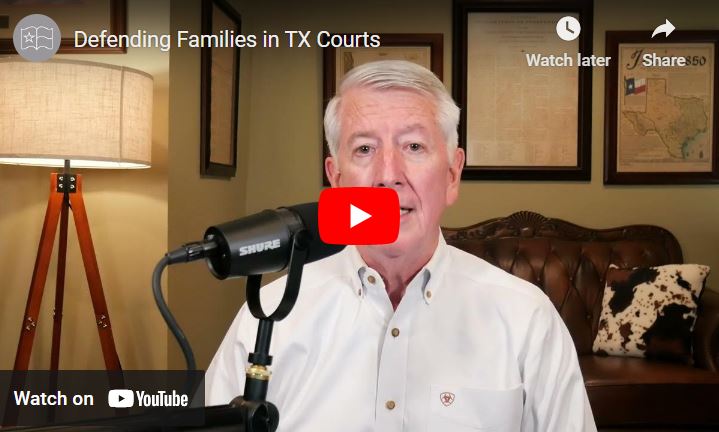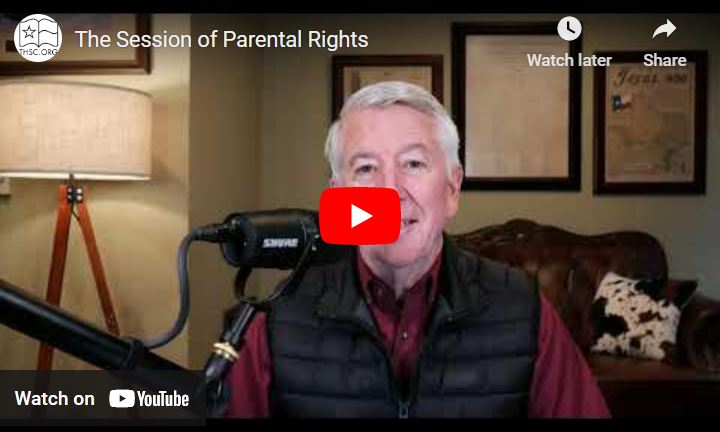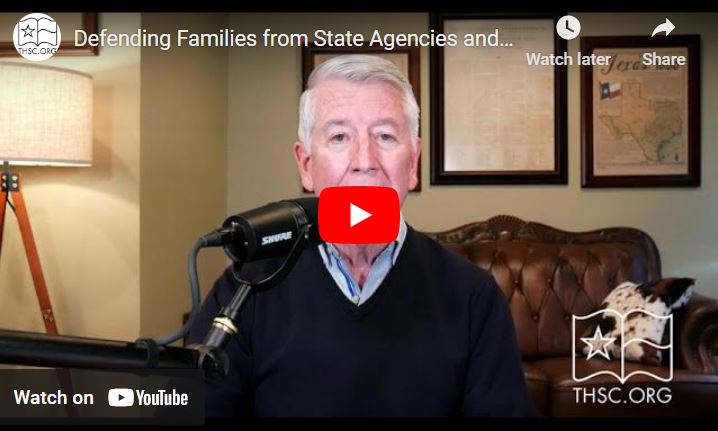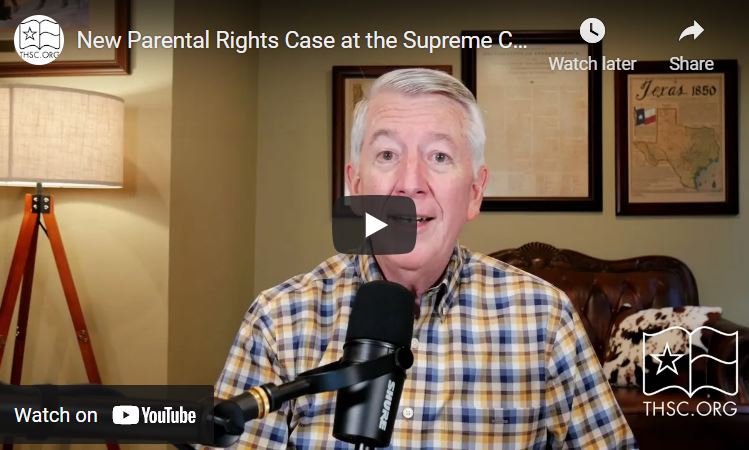The right to a “fair and fast” trial is a familiar idea for most Americans. However, this idea often does not apply to child custody cases.
Two major problems exist in child custody cases:
- temporary court orders are not subject to the same requirements that final court orders are; and
- temporary court orders can last for years and are often not-so-temporary.
Since child custody cases may continue for years before a court reaches a final decision, what happens to the child while the case is pending?

How a Court Can Become the Parent
Generally, when a person (a family member, a neighbor, etc.) sues a parent for custody of, access to, or possession of the parent’s child, a court will issue “temporary orders” at the outset of the case.
These orders determine things such as who the child should live with and who has the right to make certain decisions for the child while the case is pending. When the case is concluded, the court will issue a “final order” that expresses its ruling and determines the outcome of the case.
The problem with temporary orders is that they are not subject to the same requirements that final orders are. For example, when a court issues a final order, it must justify its order by affirming that certain criteria have been met.
However, when a court issues a temporary order, it usually does not have to justify its order.
The Constitution prohibits a court from overruling a parent’s child-rearing decision (even through a temporary order) unless:
- the parent is unfit; or
- the parent’s decision significantly impairs the child’s physical health or emotional well-being.
However, because a court does not have to justify a temporary order like it does a final order, a court can essentially overrule the decisions of a fit parent without following constitutional law.
Temporary Orders Aren’t So Temporary
Because child custody cases can take years to resolve, “temporary” orders can turn out to be not-so-temporary.
To make matters worse, temporary orders cannot be appealed. The only way to challenge a temporary order that violates the right of a fit parent to raise his or her children is through a complex legal procedure.
The procedure is difficult to obtain and requires the parent to prove that the temporary order constitutes a “severe abuse of discretion” by the local judge.
This special legal procedure is granted in many cases in which a district court gives custody of a child to a non-parent. In nearly 80 percent of appellate opinions over the last 20 years in which a district court has given custody of a child to a non-parent over the objections of a parent, the appellate court found that a “severe abuse of discretion” had occurred.
In other words, “severe abuses of discretion” happen far too often!
Ann’s Case
The latest temporary order deemed to be a “severe abuse of discretion” was an order that gave partial custody of a five-year-old girl named Ann to an unrelated man over the objections of her fit and loving father.
After a nearly two-year-long legal battle, the Supreme Court of Texas finally determined that the temporary order was a “severe abuse of discretion” and allowed Ann and her father to stay together permanently.
Courts Should Follow Constitutional Law
Ann’s case highlighted the problems that exist in child custody cases. Judges shouldn’t have unrestricted authority to limit the rights of parents through temporary orders.
THSC’s members will be working hard during the next legislative session to remedy these issues as we continue in our mission of Keeping Texas Families Free!
The right to a “fair and fast” trial is a familiar idea for most Americans. However, this idea often does not apply to child custody cases.
Two major problems exist in child custody cases:
- temporary court orders are not subject to the same requirements that final court orders are; and
- temporary court orders can last for years and are often not-so-temporary.
Since child custody cases may continue for years before a court reaches a final decision, what happens to the child while the case is pending?

How a Court Can Become the Parent
Generally, when a person (a family member, a neighbor, etc.) sues a parent for custody of, access to, or possession of the parent’s child, a court will issue “temporary orders” at the outset of the case.
These orders determine things such as who the child should live with and who has the right to make certain decisions for the child while the case is pending. When the case is concluded, the court will issue a “final order” that expresses its ruling and determines the outcome of the case.
The problem with temporary orders is that they are not subject to the same requirements that final orders are. For example, when a court issues a final order, it must justify its order by affirming that certain criteria have been met.
However, when a court issues a temporary order, it usually does not have to justify its order.
The Constitution prohibits a court from overruling a parent’s child-rearing decision (even through a temporary order) unless:
- the parent is unfit; or
- the parent’s decision significantly impairs the child’s physical health or emotional well-being.
However, because a court does not have to justify a temporary order like it does a final order, a court can essentially overrule the decisions of a fit parent without following constitutional law.
Temporary Orders Aren’t So Temporary
Because child custody cases can take years to resolve, “temporary” orders can turn out to be not-so-temporary.
To make matters worse, temporary orders cannot be appealed. The only way to challenge a temporary order that violates the right of a fit parent to raise his or her children is through a complex legal procedure.
The procedure is difficult to obtain and requires the parent to prove that the temporary order constitutes a “severe abuse of discretion” by the local judge.
This special legal procedure is granted in many cases in which a district court gives custody of a child to a non-parent. In nearly 80 percent of appellate opinions over the last 20 years in which a district court has given custody of a child to a non-parent over the objections of a parent, the appellate court found that a “severe abuse of discretion” had occurred.
In other words, “severe abuses of discretion” happen far too often!
Ann’s Case
The latest temporary order deemed to be a “severe abuse of discretion” was an order that gave partial custody of a five-year-old girl named Ann to an unrelated man over the objections of her fit and loving father.
After a nearly two-year-long legal battle, the Supreme Court of Texas finally determined that the temporary order was a “severe abuse of discretion” and allowed Ann and her father to stay together permanently.
Courts Should Follow Constitutional Law
Ann’s case highlighted the problems that exist in child custody cases. Judges shouldn’t have unrestricted authority to limit the rights of parents through temporary orders.
THSC’s members will be working hard during the next legislative session to remedy these issues as we continue in our mission of Keeping Texas Families Free!











